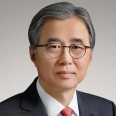*This is an opinion expressed in the Chosun Ilbo Op-ed on October 6, 2020.
President Donald Trump was hospitalized after testing positive for COVID-19. With less than a month from the US presidential election, the race has entered an even more chaotic state. While we all hope for President Trump’s recovery, it is unclear whether he will recover quickly enough to contest the election. Mr. Joe Biden is in the lead in polls after the first TV debate. It does not look easy for President Trump to seize an opportunity to come from behind with public sympathy.
The reason why South Koreans are concerned with the US presidential election is that, depending on who wins, it will have a major influence on South Korea’s survival. South Koreans see the United States as a more reliable country compared to China or Japan from the perspective of moral values and territorial ambitions on the Korean Peninsula. According to the US-based Pew Research Center, only 17 percent of South Koreans viewed President Donald Trump favorably but 59 percent viewed the United States favorably, the highest figure among 13 countries it surveyed.
With South Korea living under the shadow of North Korea’s nuclear threat, it will be important to see what changes there may be in US policy towards North Korea after the election. But, right now, there seems to be few changes on the horizon and, regardless of who wins, South Korea’s unstable political and military situation is unlikely to improve. Whenever he has a chance, President Trump boasts that “If I didn’t win the election in 2016, our country would now be in war with North Korea.” This is worrying because it plays up to North Korea’s longstanding claim that it developed nuclear weapons and ballistic missiles because of US threats. According to Bob Woodward’s latest book, Rage, President Trump reportedly considered attacking North Korea with 80 nuclear weapons in late 2017. If President Trump were seriously considering war, it should have been against the far greater threats of China or Russia. It does not make sense to consider war against the incomparably tiny North Korea.
The overall circumstances make it difficult to expect the improvement of South Korea’s security situation. South Koreans fear that the survival of 50 million people will be decided by the United States and China, as well as North Korea, with no regard to South Koreans’ will. Whether Trump is re-elected or Biden is elected, South Koreans are worried that we may face U.S. foreign policies with stronger “America First.” While Trump’s policy toward China has been criticized for being rough, he is not alone in the view that China’s rise now represents the greatest threat to the United States, with no difference between Republicans and Democrats. Given the deteriorating American public opinion about China, it will not be easy to maintain the position of “China for economy, America for security.”
At a dinner for Republican state governors in February, President Trump described South Koreans as “terrible people” while saying that he was in “good relationship” with Kim Jong Un. At a news conference in early September, he vowed to negotiate quickly with Iran and North Korea if he won the election. President Trump’s obsession with personal diplomacy could align with the current South Korean government’s focus on inter-Korean reconciliation and cooperation.
But, behind this, there is a risk that President Trump could use the ROK-US alliance as a bargaining chip. What matters to President Trump is the publicity payoff of US-DPRK talks, so he could choose to scale back or cancel military exercises or even reduction of US troops in South Korea to entice some denuclearization measures from the North.
Mr. Biden’s election strategy is to “remove Trump,” but given the lack of specifics about what he will do if he is elected, we will need to wait for further details. Biden has promised to move away from Trump’s “America First” approach, restrengthen alliances, and restore US international leadership. Mr. Biden’s emphasis on dialogue to resolve the North Korean nuclear problem seems similar to the Obama administration’s “strategic patience,” that did almost nothing to solve the problem. We are worried that it could be an “Obama 2.0” approach to the North Korean nuclear problem. There could also be policy confusion due to divisions within a new Democratic administration. A group of arms control experts in Biden’s team insists on disarmament talks that accept North Korea as a nuclear weapons state, something that Pyongyang has long demanded. This will further endanger South Korea’s security.
In a 2018 CNN poll, 70 percent of Americans said North Korea would not give up its nuclear weapons program, and 76 percent of South Koreans felt the same way in a 2019 poll, reflecting how difficult a task North Korea’s denuclearization is. But we must remain firm and clear that denuclearization is a goal that cannot be abandoned. We need to point out the dangers of a “small deal” that accepts North Korea as a nuclear weapons state. We emphasize the principle that sanctions should only be lifted and relations improved when the North shows its willingness to denuclearize. South Korea should seek to improve relations with Japan, and we need to engage China in a manner faithful to liberal democracy and free-market values and norms. The ROK-US alliance is stronger when the United States listens to Korean voice. Just as it did right after the Korean War, the ROK-US Mutual Defense Treaty, which was signed in 1953, exists today to ensure South Korea’s survival as well as peace in the Asia-Pacific region, that both South Korea and the United States aim.
* The view expressed herein does not necessarily reflect the views of the Asan Institute for Policy Studies.

 Facebook
Facebook Twitter
Twitter